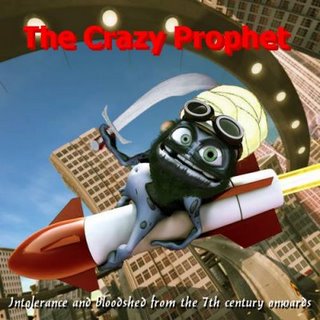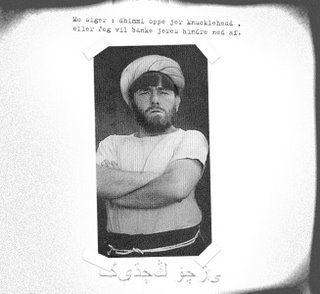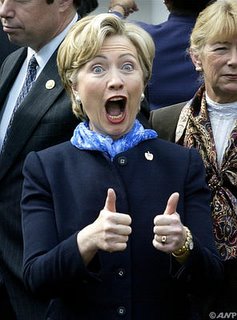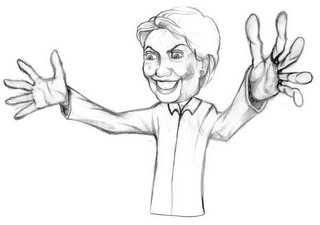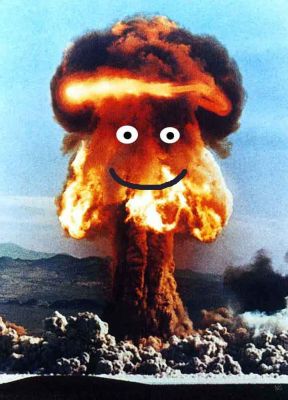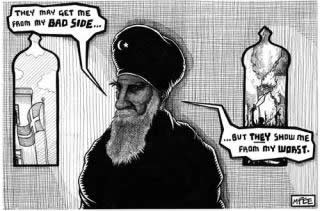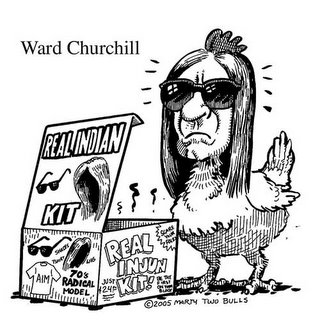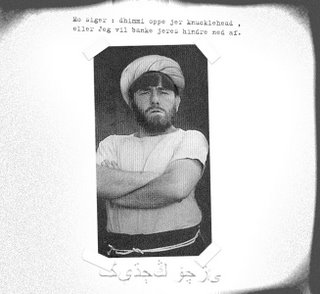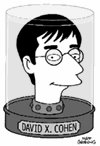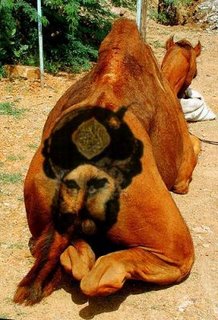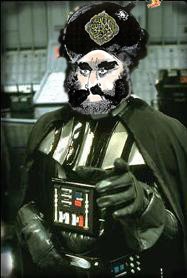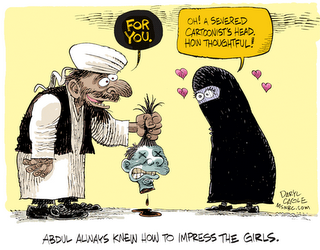On the day that the
university's report on the first list of complaints against pseudo-Indian Ward Churchil is to be released, another accusation of plagiarism and academic fraud
hits the fan.
The photograph of a child's grave in University of Colorado ethnic studies professor Ward Churchill's 2004 book about Indian boarding schools jumped out at Brenda Child.
That's because Child, a member of the Red Lake Ojibwa tribe, took the picture and published it in 1998 in her own award-winning book on the same subject.
"I was surprised that was there because he's never sought my permission to use it and it appeared without my knowing that it would be in his book," said Child, a University of Minnesota faculty member in American studies.
Worse, from Child's standpoint, is the caption Churchill appended to the photograph. It said that half the children at the nation's Indian boarding schools suffered the same fate as the child whose grave is pictured in the photograph.
That figure is a "tremendous exaggeration," Child said. "That is just beyond belief."Update:
GUILTY!Summary of Key Points of Report of the Investigative Committee of the
Standing Committee on Research Misconduct at the University of Colorado at
Boulder concerning Allegations of Academic Misconduct against Professor
Ward Churchill
May 16, 2006
The Committee was charged with investigating seven allegations:
Allegation A: Misrepresentation of General Allotment Act of 1887
Allegation B: Misrepresentation of the Indian Arts and Crafts Act of 1990
Allegation C: Captain John Smith and smallpox in New England, 1614-1618
Allegation D: Smallpox epidemic at Fort Clark and beyond, 1837-1840
Allegation E: Plagiarism of a pamphlet by the Dam the Dams group
Allegation F: Plagiarism of Professor Rebecca Robbins
Allegation G: Plagiarism of Professor Fay G. Cohen
Based on its investigation of those allegations, the Committee unanimously found, by a
preponderance of the evidence, that Professor Churchill committed several forms of academic
misconduct as defined in the policy statements of the University of Colorado at Boulder and the
University of Colorado system:
1. Falsification, as discussed in Allegations A, B, C, and D.
2. Fabrication, as discussed in Allegations C and D.
3. Plagiarism, as discussed in Allegations E and G.
4. Failure to comply with established standards regarding author names on
publications, as discussed most fully in Allegation F but also in Allegations A, B,
and D.
5. Serious deviation from accepted practices in reporting results from research, as
discussed in Allegation D.
The Committee did not find fabrication in the first sub-question of Allegation D or
plagiarism in Allegation F.
The Committee noted additionally that Professor Churchill was disrespectful of Indian
oral traditions when dealing with the Mandan/Fort Clark smallpox epidemic of 1837, both in his
essays and during the course of this investigation, as discussed in Allegation D.
2
The Committee found that Professor Churchill’s misconduct was deliberate and not a
matter of an occasional careless error. The Committee found that similar patterns recurred
throughout the essays it examined. The Committee therefore concluded that the degree of his
misconduct was serious, but differed on the sanction warranted. The Committee’s report states
as follows:
While we are unanimous in finding that Professor Churchill’s research
misconduct is serious and that we should express the degree of that seriousness
through a recommendation about sanctions, our discussions have not led to
unanimity about what particular sanctions are warranted. What follows, then, is
the only portion of our report that presents multiple views.
• Two members of the Committee conclude and recommend that Professor
Churchill should not be dismissed. They reach this conclusion because they
do not think his conduct so serious as to satisfy the criteria for revocation of
tenure and dismissal set forth in section 5.C.1 of the Law of the Regents,
because they are troubled by the circumstances under which these allegations
have been made, and because they believe that his dismissal would have an
adverse effect on other scholars’ ability to conduct their research with due
freedom. These two members agree and recommend that the most appropriate
sanction, following any required additional procedures as specified by the
University’s rules, is a suspension from University employment without pay
for a term of two years.
• Three members of the Committee believe that Professor Churchill’s research
misconduct is so serious that it satisfies the criteria for revocation of tenure
and dismissal specified in section 5.C.1 of the Laws of the Regents, and hence
that revocation of tenure and dismissal, after completion of all appropriate
procedures, is not an improper sanction. One of these members believes and
recommends that dismissal is the most appropriate sanction; the other two
believe and recommend that the most appropriate sanction is suspension from
University employment without pay for a term of five years.
Finally, the Committee had the following comments about its report:
The Committee notes that the Laws of the Regents of the University of Colorado
define “academic freedom” as “the freedom to inquire, discover, publish and
teach truth as the faculty member sees it, subject to no control or authority save
the control and authority of the rational methods by which truth is established.”
We understand and were careful to distinguish “misconduct in research,” which is
addressed by the University of Colorado’s Administrative Policy Statement on
Misconduct in Research and Authorship, from the issue of “truth” addressed by
the Regents’ Laws’ definition of academic freedom. The Committee observes
also that the allegations we were asked to investigate were initiated in the wake of
3
the public outcry concerning some highly controversial essays by Professor
Churchill dealing with, among other things, the 9/11 tragedy. While not
endorsing either the tone or the contents of those essays, the Committee reaffirms,
as the University has already acknowledged, that Professor Churchill’s right to
publish his views was protected by both the First and Fourteenth Amendment
guarantees of free speech. Although those essays played no part in our
deliberations, the Committee expresses its concern regarding the timing and
perhaps the motives for the University's decision to forward charges made in that
context. We point out finally that when Professor Churchill was hired as an
Associate Professor with tenure in 1991 and promoted to (full) Professor in 1997,
the University knew that he did not have a Ph.D. or law degree, as commonly
expected for faculty at this institution, and was aware that he was a controversial
public intellectual.
Voting Members of the Committee:
Chair: Marianne Wesson, Professor of Law, Wolf-Nichol Fellow, and President’s Teaching
Scholar, University of Colorado at Boulder
Robert N. Clinton, Foundation Professor of Law, Sandra Day O'Connor College of Law, Arizona
State University
José E. Limón, Director, Center for Mexican-American Studies and Mody C. Boatright Regents
Professor of American and English Literature, University of Texas at Austin
Marjorie K. McIntosh, Distinguished Professor of History, University of Colorado at Boulder
Michael L. Radelet, Professor and Chair, Department of Sociology, University of Colorado at
Boulder
